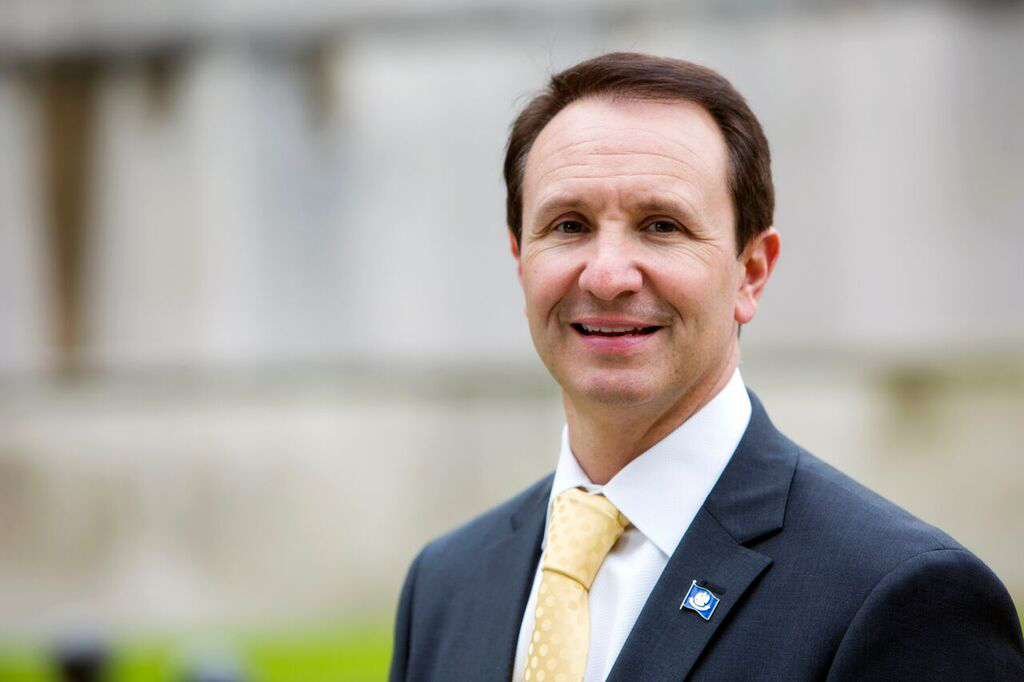By Jeff Landry, Louisiana Attorney General
EDITOR’S NOTE: Attorney General Jeff Landry has been a faithful ally of Louisiana Baptists and members of other faith communities on religious liberty matters and pro-life issues, as well as other moral concerns. He felt strongly about the recently decided U.S. Supreme Court case of National Institute of Family and Life Advocates v. Berry. This was a case in which he joined 22 other attorneys general to successfully urge the overturning of an onerous California law that compelled Christian-run pregnancy care centers to promote state-provided abortions. He subsequently wrote an editorial which he has shared with the Baptist Message.
Since the Supreme Court legalized abortion on demand in 1973, Louisiana has consistently led the way in passing legislation to protect mothers and the innocent human lives in their wombs. In fact, we are one of only four states with a “trigger law” that would ban abortion immediately if Roe v. Wade were to be overturned.
Louisiana also requires abortion clinics to follow common-sense health and safety regulations, and we mandate inspections there to ensure women are not being put at further health risks. Additionally, our State limits the use of inhumane procedures, late-term abortions, and selective abortions.
What’s more: Louisiana has some of the most comprehensive informed consent requirements in the nation – ensuring that every woman, before undergoing an abortion, is empowered with all the facts (including the possible harm she faces). For example: our ultrasound law informs the mother that human life is growing within her, details the stage of her baby’s development, and makes clear abortion would end this human life.
Moreover, our informed consent laws promote a fuller understanding of the abortion procedure and the violence it does to a growing baby with a beating heart. The laws also ensure women are educated on abortions’ potential health risks – including a punctured uterus or scarring that can impact later pregnancies, hemorrhage, and sepsis. These requirements are clearly related to the abortion procedure itself, and they promote the State’s interest in protecting women’s health and well-being.
As Louisiana’s chief legal officer, I defend our laws every time the abortion industry challenges them in court. And recently, I joined a coalition of 22 other state Attorneys General to help defend the free speech rights of pro-life pregnancy centers in NIFLA v Becerra. In this case, California was forcing pro-life pregnancy centers to inform the very women they were attempting to help choose life that the state would pay for their abortions instead.
The goal of California was not to protect women; but to force pro-life counseling centers and their volunteers and staff to provide mothers with information on life-ending medical procedures that the clinics not only do not perform but also to which they have serious moral, ethical, and religious objections.
The case made it all the way to the United States Supreme Court. In a 5-4 decision, the Court upheld the First Amendment rights of these centers. In doing so, it agreed with a very important distinction that we raised in our amicus brief: a law forcing pro-life centers to advertise for abortions is not the same as a law requiring informed consent.
When one enters into a doctor-patient relationship and seeks a medical service, an informed consent requirement for that specific service is triggered. This important part of any medical procedure is designed to ensure a patient is fully informed of the risks involved. Forcing religious-based pro-life pregnancy centers (most of whom perform limited services like distributing free self-administered pregnancy tests, offering access to ultrasounds, and providing counseling) to inform women of where they can get free abortions has nothing to do with educating them of any risks posed by pregnancy tests or ultrasounds. Rather, it is a violation of their right to be free from government-compelled speech that infringes upon the very religious beliefs motivating them to offer these services in the first place.
Justice Clarence Thomas reaffirmed in his majority opinion in NIFLA that informed consent is an important part of consenting to an abortion. And he pointed out the very distinction our brief made, when he opined: “The notice does not facilitate informed consent to a medical procedure. In fact, it is not tied to a procedure at all. It applies to all interactions between a covered facility and its clients, regardless of whether a medical procedure is ever sought, offered, or performed. If a covered facility does provide medical procedures, the notice provides no information about the risks or benefits of those procedures.”
Louisiana law promotes mothers choosing life and provides/reaffirms the importance of informed consent when women make this life-altering decision. My office and I will continue to defend these statutes and work toward empowering women with the truth about abortion and its consequences. We will also continue to defend the rights of religious organizations and individuals to be free of government interference with the free exercise of their beliefs.
I will never abandon these fights.
Jeff Landry is the Attorney General of Louisiana. You can follow him on Twitter at @AGJeffLandry




